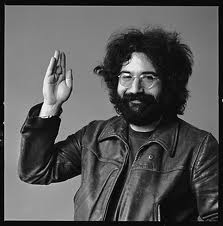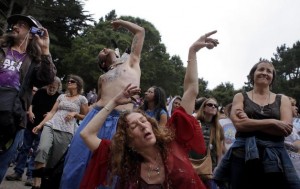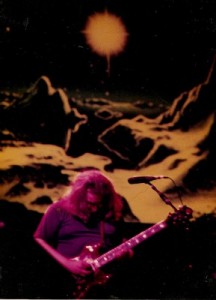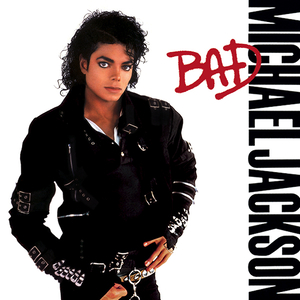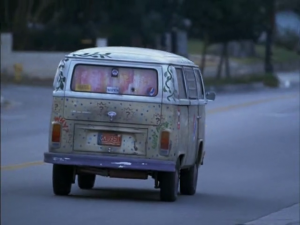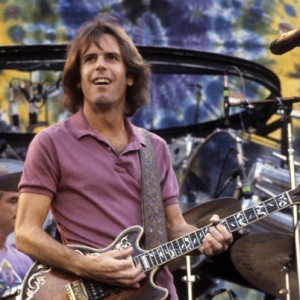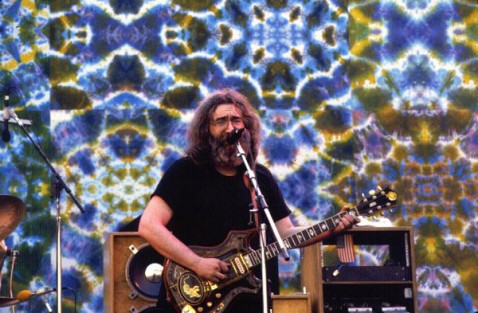
Bringing In the Dead
On last week’s edition of my podcast, WHAT ARE YOU READING?, I made a painful disclosure about myself. Here I fill in some details. Warning: This is harrowing stuff.
I had boundaries, once. Not rules, not hard limits, more like the borders between towns and counties. Here was the music I liked, there was the music I might like, and there was the music I would just never, ever come to like. In that latter, smallest category: reggae, opera, and the Grateful Dead. And I tried plenty of all three, by the way. And of those three, two were things I could take or leave but probably wouldn’t ever come to like. Only one was subject to my eternal dislike. I had, as the meme goes, ONE JOB.
And then I blew it.
Cut to now, 2014: I’ve become a person who not only has favorite Grateful Dead shows (May 28, 1977, Hartford, aka To Terrapin; December 31, 1978, San Francisco, aka The Closing of Winterland; Fillmore West 1969), but favorite performances of Grateful Dead songs. (At the risk of embarrassing myself even more, I won’t tell you which versions of “Sugaree” or “Scarlet Begonias/Fire on the Mountain” I like best.) I honestly don’t know what happened to me. I haven’t stopped loving any of the indie rock and soul and classic country, etc., that’s been my musical food for most of my adult life; all that stuff is there, but there’s this new stuff, too. It’s like waking up to find your house has somehow gotten bigger overnight — and who wouldn’t want that? Except there’s a really tacky couch you never asked for sitting in the living room.
My first exposure to the Grateful Dead was not through their music, but through their fans. I was thirteen, walking with my family through the Galleria mall in Worcester, Massachusetts, October, 1983. My parents, younger sister, and I were on our way to see a movie. The mall was our regular mall until it suddenly wasn’t: at the darkest end, beneath the escalator banks, swarmed what seemed like hundreds of hippies.
TV portrayals of hippies always seem canned and too on-the-nose. Even Mad Men, revered for its attention to detail, has gotten some shit for its generic hippies of the past two seasons. I wasn’t around in the ’60s, but in 1983? This crowd looked exactly like TV hippies: lots of tie-dye, flowing skirts, hair, army jackets, bandanas. The works. And they weren’t belligerent or menacing, but I found their group-ness terrifying. More than that, they pissed me off.
See, this was the year my older sister had run away. She was sixteen and disappeared, just before the end of the school year, with a rough, truly violent guy, and didn’t come home until the cops caught up with them at the very end of the summer. In between, my family spent a lot of time looking for her — it turned out she and the guy had never left our part of the county — while doing our best to feel normal. My sister had fancied herself a hippie, and while I have no idea if she even listened to the Grateful Dead with any real interest, I knew I did not have much patience for hippies, certainly not that year.
When I was fourteen, my next-door neighbor, who’d always been a reliable source of Ozzy Osbourne and Scorpions for me, said, “You have to listen to this.” And he sat me down on a metal chair in his basement and played what I now know to be “Dark Star” from the Live Dead album. It’s 23 minutes, 18 seconds long.
It did not do the trick. Two minutes in, when I realized this wasn’t going to erupt into some kind of awesome screaming of Carvel-Jackson guitars, I started to drift. Then he switched to Workingman’s Dead and began to tell me about the shift the band had made in 1970, from psychedelic jams to blahblahblahonandonandon and all I could think of was how the song that was playing, “Uncle John’s Band,” just sounded like Crosby, Stills & Nash on a melted tape. He didn’t give up, though, and sent me home with his copy of Aoxomoxoa. I put it on as I went to bed that night and fell asleep nearly instantly, though not without thinking that at least that album’s opener, “St. Stephen,” sounded recognizably like classic rock — vaguely Allman Brothers-y, maybe? But the next morning I handed it back and my neighbor stopped trying to convert me.
My next attempt with the Dead was when “Touch of Grey” came out in the summer of 1987. I was a new driver, and being able to borrow my dad’s car (a Dodge Colt) and play cassettes as I drove was exciting territory. I still have no idea what possessed me to buy In the Dark, but I did and I…mostly didn’t mind it. I think I was more impressed with that fact than I was with anything that was actually on the album. It wasn’t bad to drive to, was the best thing I could say about it. Had I gone deeper, the Dead might’ve gotten their hooks in me right then if it weren’t for R.E.M., whose Document came out at the end of that same summer.
From then on, it was a mix of indie rock, thrash, rap, industrial, and pretty much anything but the Grateful Dead. The tiny contingent of hippies at my working-class state college didn’t enrage me (several were friends), they just baffled me. Why would you listen to that noodling, watery guitar? How could that move you in any way? Did you not like momentum or hooks? Memorable melodies? Rock that at least tried not to be embarrassing? I held on to these questions for decades, the way I held on to the marvel I felt that I still loved Sonic Youth and Fugazi even as I discovered new stuff like Call Me Lightning and Sharon Van Etten, even as I delved deep into older stuff like Otis Redding and Loretta Lynn. Then I got older than 40.
I can blame a lot of things — a sudden, renewed interest in Pink Floyd at 39. The newfound ability, at 40, to listen to long, live Led Zeppelin jams. Acquiring the Television reissues produced by the great Andy Zax. (There’s been a lot written over the years about Television’s debt to the Dead. I’d say the same is true of Sonic Youth, Pavement, and Wilco.) Watching Freaks and Geeks with my kids — I’d missed it the first time around — and watching the series fade out so perfectly to the tune of “Ripple.”
More than anything, I can blame Spotify. In addition to causing me much moral conflict — and I promise you, I do still buy music — Spotify has enabled my sick relationship with the Grateful Dead in a way that wouldn’t have been possible two years ago. How I know what shows I like and what performances are my favorites is largely due to the fact that every official Dead release (including all the Dick’s Picks, Download Series, and the complete Europe ’72) is on fucking Spotify. This is how I came across Fillmore West 1969, which opens with “Morning Dew.” This version of “Morning Dew” has a slow build to a pounding lead section with real bite and actual distortion. This is the track that got me.
Now: anyone who’s listened to the Dead even casually knows that “pounding lead section” doesn’t remotely describe the bulk of the band’s output. And that’s where I’ve been most surprised: that I’ve grown not just the constitution but an outright love, even, for Garcia’s doodly excursions, Phil Lesh’s weird, loping bass lines, and the often-pointless two-drum attack of Mickey Hart and Bill Kreutzmann. I miss Donna Godchaux’s long-maligned background vocals when they’re not there. I’ve even learned to absorb the goofy barroom piano when it shows up.
You’ll notice I left something out.
I’m sorry, but Bob Weir nearly kills it for me every time. Every band has a member who just tries too hard, and he is the Dead’s. For some reason, Weir decided he was going to sing all the R&B-flavored songs — “Promised Land,” “Bertha,” “One More Saturday Night.” But Bob Weir has perhaps the least soulful voice in all of rock and roll. It’s a big claim, but I think he can back it up. Even from the earliest, sloppiest days, he sounded like someone’s Presbyterian uncle cutting loose on the back porch. The one song of Weir’s that I really like is “Jack Straw,” whose non-badness is undercut immediately by a first line — “We can share the women/We can share the wine.” — so gross it could be an outtake from “Lay Lady Lay.”
But that’s the other thing about getting older: I let things like this go. Where once a “bad” song would be grounds for skipping, now I think: “Eh, if I let this play, then ‘I Know You Rider’ or ‘Deal’ will be that much better.” And that’s how I know that despite all my early excuses (“I just find them interesting!”), I am actually a Grateful Dead fan.
The Grateful Dead Curse (as it is commonly known) has infected me in other ways. Why, just the other day I was driving along, listening to part of a 25-minute live version of Fleetwood Mac’s “Rattlesnake Shake,” from their 1970 Boston Tea Party show, and I heard myself go, “Wow! Jeez.” To be fair, Peter Green is a bit of a monster, as far as guitar players go. But still: “Wow! Jeez”? Hearing that from my own mouth was like walking in on someone doing something intensely personal. How long before I start referring to people as “cats”? How long before I start sneaking up to Toad’s Place in nearby New Haven to check out the Grateful Dead tribute acts? And how long before I find an equally goony friend to go there with me?
Something might cure this. Time itself could reverse the process. Death, certainly would. Or maybe digging out the three-disc This Is Industrial compilation and making that my only means of entertainment for a month. Or maybe I’ll just accept what’s happened. Maybe I’ll enjoy the music, avoid the goofier trappings, and learn to say, “Hey, I love the Grateful Dead” without any qualifiers.
Maybe.


